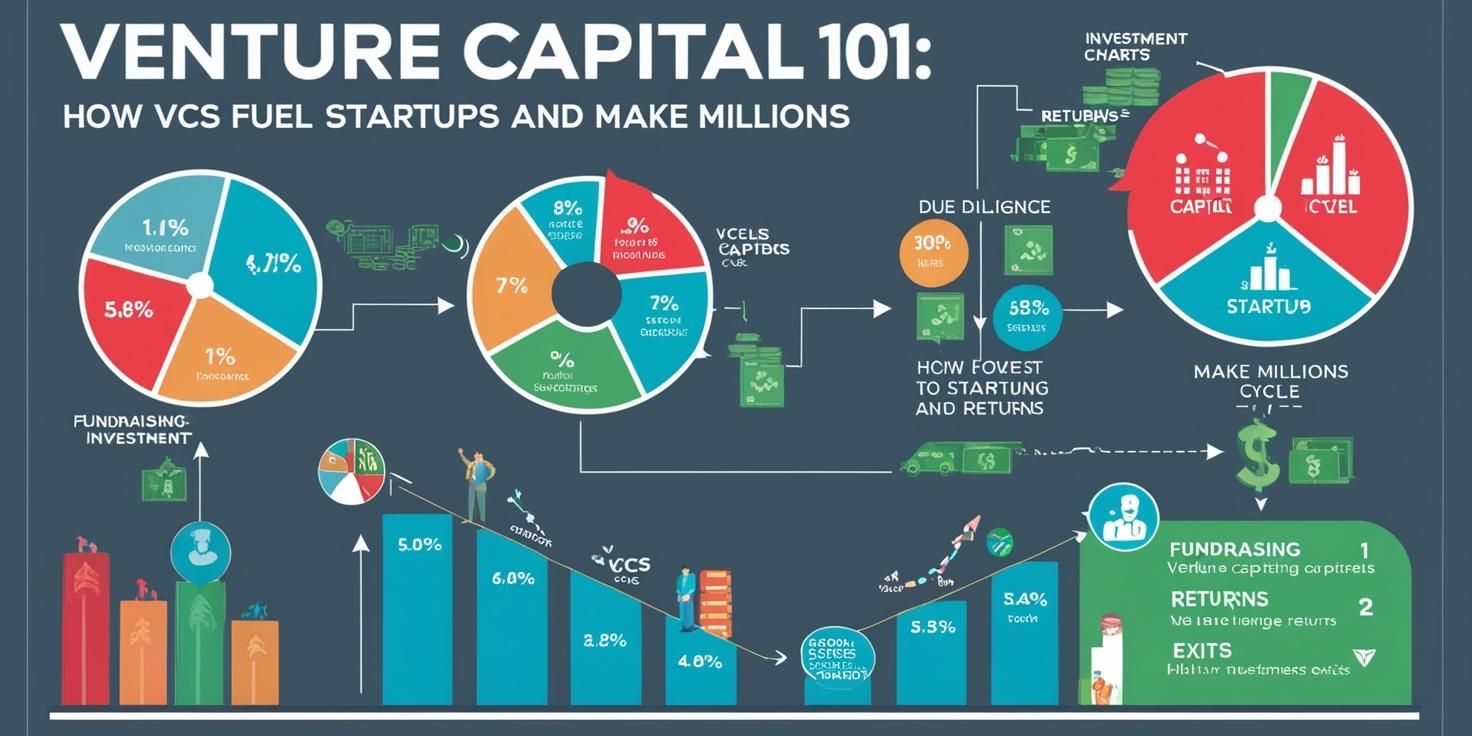Venture Capital 101: How VCs Fuel Startups & Make Millions
Master

What is a Venture Capitalist (VC)?
A Venture Capitalist (VC) is an investor or a firm that provides funding to early-stage, high-potential startups and small businesses in exchange for equity (ownership stakes). Unlike traditional lenders, VCs take on more risk by investing in companies that may not yet have proven revenue models, but they do so with the expectation of high returns if the company succeeds.
How Does Venture Capital Work?
1. The Venture Capital Process
Here’s a step-by-step breakdown of how venture capital works:
a. Fundraising by VC Firms
• Venture Capital Firms raise money from Limited Partners (LPs) such as pension funds, wealthy individuals, and institutional investors.
• This pool of money forms a venture fund, which the VC firm uses to invest in promising startups.
b. Sourcing Deals (Finding Startups)
• VCs actively look for startups with high growth potential, usually in innovative industries like tech, healthcare, or fintech.
• Startups often pitch their business ideas to VCs through pitch decks and presentations.
c. Due Diligence (Evaluating Startups)
• Once a startup catches their interest, VCs conduct due diligence, which involves:
• Analyzing the startup’s business model, market potential, and financials.
• Assessing the founding team’s capabilities.
• Checking for potential risks or legal issues.
d. Investment & Terms
• If the startup passes due diligence, VCs offer funding in exchange for equity.
• This is formalized in a term sheet outlining:
• Investment amount.
• Valuation of the startup.
• Equity percentage the VC will receive.
• Control rights (like board seats).
e. Active Involvement
• VCs don’t just provide money; they often play an active role by:
• Offering strategic advice and mentorship.
• Connecting startups with their network of industry experts and potential customers.
• Helping with future fundraising rounds.
f. Exit Strategy (How VCs Make Money)
VCs aim to exit their investments within 5-10 years through:
• Initial Public Offerings (IPOs): The startup goes public, allowing VCs to sell their shares.
• Acquisitions: The startup is bought by another company, and VCs get a payout.
• Secondary Sales: VCs sell their shares to other investors.
The goal is to achieve high returns—typically aiming for 10x or more of their initial investment to offset the risks of other startups that may fail.
Why Do Startups Seek Venture Capital?
1. Access to Capital: Startups need significant funding to scale operations, hire talent, and develop products.
2. Mentorship & Expertise: VCs bring industry experience, strategic advice, and networking opportunities.
3. Validation: Getting funded by a reputable VC boosts a startup’s credibility in the market.
Risks for Startups and VCs
• For Startups:
• Loss of Control: Founders give up equity and decision-making power.
• High Growth Pressure: VCs expect rapid scaling, which can strain resources.
• For VCs:
• High Failure Rate: Many startups fail, and VCs rely on a few big wins to cover losses.
• Long-Term Commitment: Investments can take years to yield returns.
Conclusion
Venture capital is a powerful tool for startups looking to grow quickly, but it comes with risks and responsibilities. For VCs, it’s about balancing risk and reward—backing the right startups can lead to massive returns, but it requires careful evaluation and strategic involvement. For startups, securing VC funding can open doors to resources, expertise, and new opportunities, but founders must be prepared to share control and meet high growth expectations.